The namesake of the McLuhan Foundation reflects the early leadership of Marshall McLuhan in what we speak of now as media literacy. He pioneered efforts to understand the impact of technologies and their environments on how we see, think and act. In the mid twentieth century he probed with a prescience and poetic insight that resonates clearly with today’s realities. In this library we offer a selection of his commentaries and works that are of interest to anyone concerned with the rapidly changing realities of our times dominated by electronic and digital influence. In particular we suggest in brief commentary what educators might explore that may be instructive in the classrooms they serve.
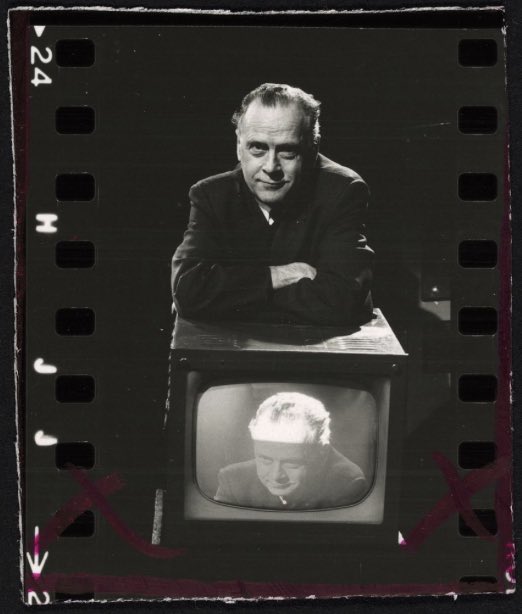
Audio/Video
Available Videos: –Marshall McLuhan 1977 Informal interview by Carl Scharfe on City as Classroom: https://www.youtube.com/watch?v=aX9j_3bxZU0Also available on YouTube: City as Classroom: Understanding Language & Media (1977) by Marshall McLuhan: https://www.youtube.com/watch?v=rMmapm1MPQA&t=5s Producer: None indicated in this informally produced short video.Date of Interview: 1977Interviewer: Carl ScharfeDuration: 8:21The text is available at: https://mcluhansnewsciences.com/mcluhan/2018/09/mcluhan-interview-on-the-city-as-classroom/ Key Themes & Ideas Marshall […]

Audio/Video
Available Videos: –
Marshall McLuhan 1977 Informal interview by Carl Scharfe on City as Classroom: https://www.youtube.com/watch?v=aX9j_3bxZU0
Also available on YouTube: City as Classroom: Understanding Language & Media (1977) by Marshall McLuhan: https://www.youtube.com/watch?v=rMmapm1MPQA&t=5s
Producer: None indicated in this informally produced short video.
Date of Interview: 1977
Interviewer: Carl Scharfe
Duration: 8:21
The text is available at: https://mcluhansnewsciences.com/mcluhan/2018/09/mcluhan-interview-on-the-city-as-classroom/
Marshall McLuhan begins by acknowledging that his most recent book (and last to be published during his lifetime), City as Classroom (1977), was influenced by Ivan Illich’s Deschooling Society (1970). Illich had argued that all the answers to questions were outside of schools, which inspired him to assert that all schools should be closed. McLuhan disagreed and proposed instead that since the answers were outside, the questions should be situated inside; that way there could be a dialogue between the inside and outside. McLuhan wanted students to go outside in small groups to study what was out there, a figure-ground approach. McLuhan went on to say that at an earlier time, school or “scholia” meant “leisure,” among other things, and was established for people who didn’t have to work; but by his day, schools had turned classrooms into places for work. In the information environment outside, the paradox was that the workers were more engaged in learning than those in the school room, a hundred times more, according to McLuhan.
Asked how this came about, he stated that, “it came about through the electronic environment. The information environment of the electric circuits and so on carry enormous quantities of information which are available to everybody outside the school room. Inside the school room, not very much of this is available. The schools are committed to a form of learning which does not permit very much use of the electronic circuits. However, they’re aware of this now increasingly and aware that they might be able to take up some of the uses of the electric environment in the school.”
Illich didn’t offer any solution, possibly because putting students in schools was in his opinion an obsolete practice. In the distant past students had learned by working outside with adults in the community. Today, this sort of arrangement is happening again. But in the 17th and 18th centuries, the bourgeoisie took their children out of the environment and put them in classrooms where they were taught the specialized training of what is now called literacy. McLuhan opines that when a child learns his native language s/he acquires a vast storehouse of knowledge, as the language itself is a huge databank.
McLuhan ends the interview by promoting his recently published book, City as Classroom (1977): “Well, you can see that the book is loaded with projects which would take teams of students out of the classroom, two or three at a time. They would case the joint, size up their problem, and they’d have to do this by dialogue. They’d have to do a great deal of talking among themselves before, and then interviewing people, before they could go back to the classroom and report what they found. When they go back to the classroom there’s more and more and more dialogue with the people in the classroom and with the teacher of what they [had found].”
Possible Uses in Media Education
It was right for McLuhan to debunk Ivan Illich’s assertion that today’s schools should be closed because the answers to all academic questions were to be found outside of schools instead of inside. Unlike the 1970s in North America, computers and information technology are now quite widely used in education at all levels beyond early primary grades. And computers in classrooms enable worldwide connections between classrooms in many countries. Without computers in schools, it would be impossible for Education to participate in today’s latest challenge to institutional learning, artificial intelligence (AI). Furthermore, this video is useful in promoting his single published book on Education, City as Classroom: Understanding Language and Media (1977), which was published separately in the United States as Media, Messages and Language: The World as Your Classroom (1980), the title of which emphasizes its relevance well beyond cities.
ADDENDUM
Thereis an interesting use of scrolling text superimposed on the video screen of the first video listed above, using the cinematic technique called a “roll-up” or “crawl,” which Star Wars creator George Lucas used in his Star Wars movies (see Wookieepedia online.) Here it is using capital letters, as in the video, starting at 1:05): –
[MCLUHAN] RETURNED TO NOTIONS ABOUT THE CLASSROOM THAT HE HAD FIRST BEGUN TO WORK OUT A QUARTER OF A CENTURY BEFORE IN EXPLORATIONS. ‘CLASSROOM WITHOUT WALLS’ (EXPLORATIONS 7’ [1957’]) ARGUES THAT THE ELECTRONIC EXPLOSION HAS BEEN SO GREAT THAT ‘MOST LEARNING OCCURS OUTSIDE THE CLASSROOM (EXC 1). THIS HAS BROKEN THE HEGEMONY OF THE BOOK AS A TEACHING AID AND CHALLENGED THE MONOPOLY ON EDUCATION VESTED IN OFFICIAL INSTITUTIONS OF LEARNING. YET MOST EDUCATORS PERSIST IN REGARDING THE PRODUCTS OF THE MASS MEDIA AS ENTERTAINMENT RATHER THAN AS EDUCATIVE. MCLUHAN POINTS OUT, HOWEVER, THAT MANY LITERARY CLASSICS WERE ORIGINALLY REGARDED IN THE SAME WAY, AND THAT THE ENGLISH LANGUAGE IS ITSELF A MASS MEDIUM. THE EDUCATIONAL IMPERATIVE IS THUS, TO MASTER THE NEW MEDIA IN ORDER TO ‘ASSIMILATE THEM TO OUR TOTAL CULTURAL HERITAGE’ (2) WHICH WOULD ‘PROVIDE THE BASIC TOOLS OF PERCEPTION’, AS WELL AS DEVELOPING ‘JUDGMENT AND DISCRIMINATION WITH ORDINARY SOCIAL EXPERIENCE’ (3). THIS OBSERVATION IS THE POINT OF DEPARTURE FOR CITY AS CLASSROOM, WHICH OUTLINES METHODS FOR TRAINING PERCEPTION THROUGH A SERIES OF EXERCISES IN PROPERTIES OF THE MEDIA, WITH THE GOAL OF HELPING STUDENTS TO UNDERSTAND THE SOCIOCULTURAL CONTEXT IN WHICH THEY LIVE. THE EXERCISES ENCOURAGE STUDENTS TO GO OUT OF THE [Remaining text is undecipherable…]
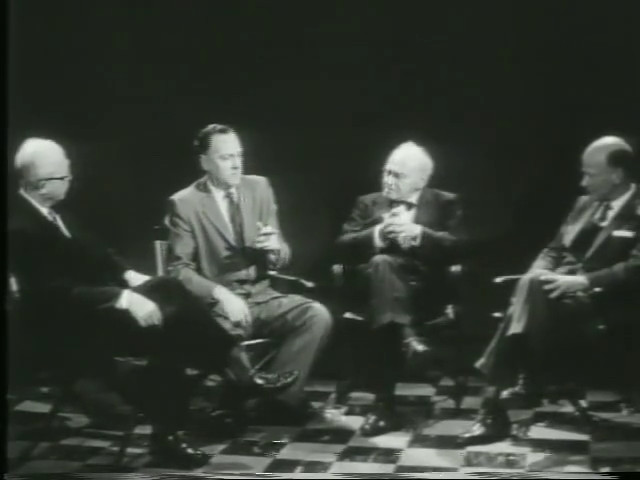
Audio/Video
A Panel Discussion with Edgar Dale, Marshall McLuhan, Gilbert Seldes & Keith Tyler Official Site of Marshall McLuhan: https://www.marshallmcluhan.com/films/ (See the last video on the page). See also Marshall McLuhan Speaks Special Collection: https://marshallmcluhanspeaks.com/panel/1960-the-communications-revolution/index.htmlAlso available on YouTube: https://www.youtube.com/watch?v=H3p075ur-aYProducer: United States. Department of Health, Education, and Welfare. Education Division. Office of Education.Date of this Panel: October […]

Audio/Video
A Panel Discussion with Edgar Dale, Marshall McLuhan, Gilbert Seldes & Keith Tyler
Official Site of Marshall McLuhan: https://www.marshallmcluhan.com/films/ (See the last video on the page). See also Marshall McLuhan Speaks Special Collection: https://marshallmcluhanspeaks.com/panel/1960-the-communications-revolution/index.html
Also available on YouTube: https://www.youtube.com/watch?v=H3p075ur-aY
Producer: United States. Department of Health, Education, and Welfare. Education Division. Office of Education.
Date of this Panel: October 29, 1960
Moderator: Gilbert Seldes, American cultural critic
Panelists: Edgar Dale, Marshall McLuhan, Gilbert Seldes, Keith Tyler
Duration: 21:46
Description: The Communications Revolution (1960) is a panel discussion between Marshall McLuhan and two other academics, Edgar Dale and Keith Tyler, and cultural critic Gilbert Seldes, who chaired the panel. The event took place at the third annual Conference on the Humanities on October 28-29, 1960 at Ohio State University. The general theme of the conference was “Popular/Mass Culture: American Perspectives.” McLuhan, already well-known for his views on electric media, was the central focus at the conference and gave a keynote lecture on the first day titled “Technology, the Media, and Culture,” the text of which can be found in Understanding Me: Lectures & Interviews (2003), pp. 13-33″.
The panel discussion on The Communications Revolution (1960) took place on the second day of the conference, chaired by Gilbert Seldes (1993-1970), the leading cultural critic of the day. Edgar Dale (1900-1985) was a Professor of Audio-Visual Education at OSU and the author of a well-known textbook about educational media that was the standard reference on audio-visual media for over a decade, reissued in several updated editions: Audio-Visual Methods in Teaching (1946).
Selected McLuhan Quotes from the Communications Revolution Panel
A New Medium Elucidates the Medium it Supplants: “I think one of the things that happens when a new medium comes on the scene is you become aware of the basic characteristics of older media in a way that you were not when they were the only things around. I think we’re becoming more aware now of what print is than we were before. Radio seems to have acquired more sense of its own identity since television, and movies likewise”. (The Communications Revolution in Understanding Me (2003, p. 35)
Obsolesced Media Are Repurposed: “… it would seem natural that older forms [media or technologies] are put to new uses and discover new roles. The book, for example, in our time has discovered many new functions that it never had fifty or a hundred years ago. It has become very powerfully directed toward teaching people how to learn other things besides books [e.g. how-to books], how to learn arts of many kinds. The book has taken on a vast new function as a means of informing people, directing people’s skills in many, many areas” (p. 35).
Possible Uses in Media Education
Gilbert Seldesbegins the panel discussionby asking, what is the nature of the new media – TV, radio, movies – collectively called mass media, what do they do to us, and what do we do about them? Relevant to these questions, he cites the relevance of political economist Harold Innis’s recent media studies. McLuhan explains that any major change in the media environment forces a readjustment of all social, educational, and political patterns, as well as political power and public opinion. He goes on to state that the adoption of TV in politics is causing a power shift, favoring “cool” personalities, since TV is a cool medium, requiring lots of participation, without providing a completed image. TV is a depth medium, whereas the movie medium is photographic and packaged, providing a highly defined and slick complete package. Keith Tyler differentiates the past print period from the new electronic period. Linearity characterized print, but is not characteristic of radio, TV, or movies. McLuhan ends by asserting that, when any new medium arrives in prominence, we naturally view it through the mediums that came before.
A transcript of this panel discussion is available for download from https://www.marshallmcluhanspeaks.com/panel/1960-the-communications-revolution/index.html
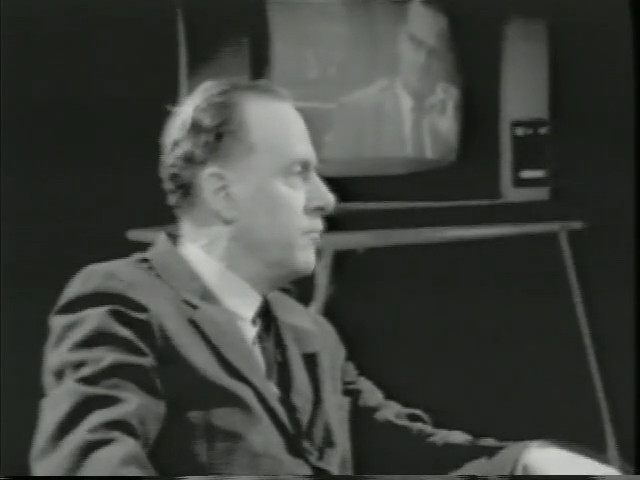
Audio/Video
Marshall McLuhan interviewed on the BBC Monitor TV programme by Frank KermodeDuration: 16:11The Marshall McLuhan Speaks Special Collection: https://marshallmcluhanspeaks.com/interviews/the-future-of-man-in-the-electric-ageYoutube: https://www.youtube.com/watch?v=0pcoC2l7ToIProducer: BBC TV MonitorBroadcast date: 24 January 1965Interviewer: Frank Kermode Key Themes and Ideas Impact of the invention of the printing press (00:00)Pattern recognition (06:00)The Medium is the message (07:39)The nature of the TV medium (09:19)Hot […]

Audio/Video
Marshall McLuhan interviewed on the BBC Monitor TV programme by Frank Kermode
Duration: 16:11
The Marshall McLuhan Speaks Special Collection: https://marshallmcluhanspeaks.com/interviews/the-future-of-man-in-the-electric-age
Youtube: https://www.youtube.com/watch?v=0pcoC2l7ToI
Producer: BBC TV Monitor
Broadcast date: 24 January 1965
Interviewer: Frank Kermode
Impact of the invention of the printing press (00:00)
Pattern recognition (06:00)
The Medium is the message (07:39)
The nature of the TV medium (09:19)
Hot and cool media (10:58)
New technology as disruptive (12:57)
Immortalized in his snappy and alliterative phrase “the medium is the message,” one of McLuhan’s most enduring ideas was that media themselves reshape society rather than the information those media transmit. This simple fact, he argued, was often overlooked because we cannot easily discern the environment we create around our society–often likening the phenomenon to fish being unaware of water.
In this interview with Frank Kermode on the BBC TV programme Monitor, McLuhan expounds on these ideas while also discussing the specialization and fragmentation caused by a societal focus on writing and the written word. “Writing represents a high degree of specializing of our powers…there’s a considerable concentration on one faculty when you develop a skill like scripting,” he says. McLuhan believed different media spoke to senses differently, and that writing created a visual world order which was being overturned by television (and its auditory world order) in his time. This leads Frank Kermode to explain his conceptions of “hot” and “cool” media.
McLuhan’s insights here help to elucidate the distinction between form and content. How can we analyze one without the other, and why should we? McLuhan’s discussion of television superseding the written word also points to how rapidly new human environments can emerge, and the massive societal changes this can bring without us even realizing it. How this understanding might be applied to the internet as the current main human communication environment is a topic to be explored.
A transcript of the discussion in this interview is available for download from https://www.marshallmcluhanspeaks.com/media/mcluhan_pdf_2_No2kVoY.pdf
Alexander Kuskis PhD
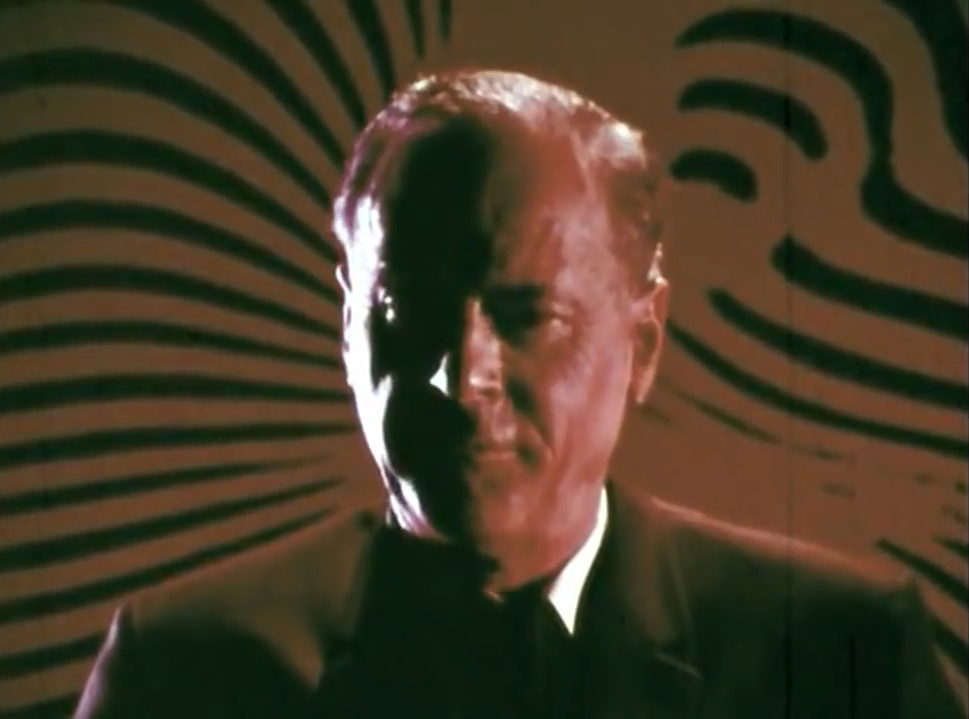
Audio/Video
Duration: 51:11 Web Address: https://www.youtube.com/watch?v=cFwVCHkL-JU&t=3sThis video appears in other locations on the Internet, including on YouTube, erroneously titled The Medium is the Message, for example at https://www.youtube.com/watch?v=t1axnba_Ueg&t=26s. However, it is not by accident that the original film appeared in 1967, the same year as the book titled The Medium is the Massage (1967) was published. […]

Audio/Video
Duration: 51:11
Web Address: https://www.youtube.com/watch?v=cFwVCHkL-JU&t=3s
This video appears in other locations on the Internet, including on YouTube, erroneously titled The Medium is the Message, for example at https://www.youtube.com/watch?v=t1axnba_Ueg&t=26s. However, it is not by accident that the original film appeared in 1967, the same year as the book titled The Medium is the Massage (1967) was published. The Medium is the Massage website at https://www.themediumisthemassage.com/ makes clear that the film was derivative of the book, as was the LP record version of McLuhan’s best-selling book. The title “This is Marshall McLuhan,” included above, was the title that NBC gave this film when they broadcast it on their TV network in 1967 for one time only (See Broadcast Date below).
Producer: Ernst Pintoff, in association with Guy Fraumenia, for McGraw-Hill Text-Films
Narrator: Edward Binns
Recorded in New York City in 1967
Broadcast Date: Broadcast on NBC TV once only on Sunday, March 19, 1967 at 4 PM.
Key Themes & Ideas:
McLuhan comments, starting at 2:19: “The title The Medium is the Massage is a teaser. The title is intended to draw attention to the fact that a medium is not something useful – it does something to people – it takes hold of them – it roughs them up – it massages them — it bumps them around – the general roughing up of any society gets them a medium especially a new medium is what is intended to be indicated in that title…the medium does things to people and they are always completely unaware of this – they don’t really notice the new medium that is roughing them up – they think of the old medium because the old medium is always the content of the new medium.”
This video combines a narrative developed by the producers of the video, interspersed with video clips of McLuhan explaining his book, The Medium is the Massage (1967). The book is a collection of his one-liners and longer probes about the impacts of electric media, which together with the images collected by his co-author Quentin Fiore, illustrate McLuhan’s observations. The video mostly consists of McLuhan responding to questions posed by the narrator Edward Binns, the answers to which illustrate McLuhan’s ideas. As McLuhan was more effective as a speaker than a writer, this collection of his oral observations of the impacts of the new media of his time is an invaluable resource for those who want to fully understand McLuhan’s understanding of media and their effects on their users. In addition to the key theme described above, in the various clips, McLuhan describes and comments on the following topics: 1. why he was motivated to study the effects and impacts of media, 2. what he meant by the global village, 3. the impacts of electronic media on education, 4. the important role of artists in understanding the impacts of media, 5. the role that jokes play in society representing grievances, 6. the role of role playing among youth, 7. the nature of news (It takes the bad news to sell the good news, which is the advertising), 8. how politics has changed by TV where image is more important than policy, 9. how the train and the airplane affected the organization of the city, 10. how the speedup of technology requires pattern recognition to understand what is happening to us, 11. his notion of hot and cool media, and 12. his notion of the rear-view mirror and the idea that the future of the future is the present.
Possible Uses in Media Education:
This video is best used for teaching McLuhan’s notion that the most important effects of media are not their content but the subliminal effects of media that are independent of their content. This video illustrates, explains, and documents McLuhan’s most famous one-liner – “the medium is the message” – as well as providing an understanding of why he titled his book with Quentin Fiore, The Medium is the Massage. This video provides a better understanding of some of McLuhan’s wild ideas that he wrote about, when he talks about them in his down-to-earth oral presentation.
Robert K. Logan, PhD
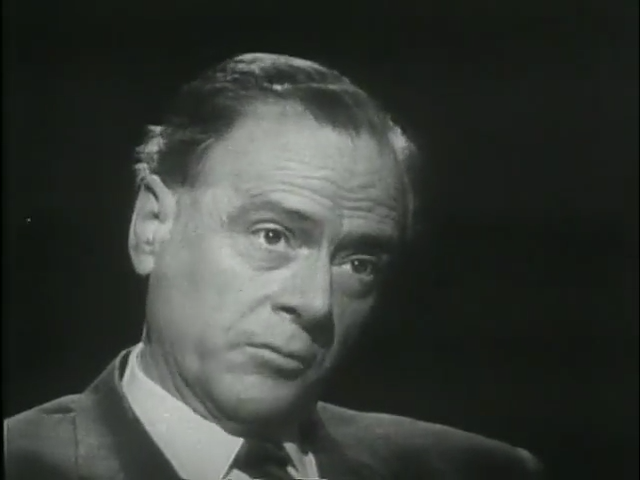
Audio/Video
YouTube Web Address: https://www.youtube.com/watch?v=ijeMM-NXvus&t=12sCBC Web Address: https://www.cbc.ca/archives/entry/marshall-mcluhan-oracle-of-the-electric-ageProducer: CBC TV This Hour Has Seven DaysBroadcast Date: May 8, 1966Host: Patrick WatsonInterviewer: Robert Fulford, Canadian Journalist Key Themes & Ideas:McLuhan predicts the coming of the Internet and the World Wide Web 30 years before its arrival starting at around 3:53:“Instead of going out and buying a packaged […]

Audio/Video
YouTube Web Address: https://www.youtube.com/watch?v=ijeMM-NXvus&t=12s
CBC Web Address: https://www.cbc.ca/archives/entry/marshall-mcluhan-oracle-of-the-electric-age
Producer: CBC TV This Hour Has Seven Days
Broadcast Date: May 8, 1966
Host: Patrick Watson
Interviewer: Robert Fulford, Canadian Journalist
Key Themes & Ideas:
McLuhan predicts the coming of the Internet and the World Wide Web 30 years before its arrival starting at around 3:53:
“Instead of going out and buying a packaged book of which there have been 5000 copies printed you will go to the telephone describe your interests, your needs, your problems and say I am working on the history of Egyptian arithmetic. I know a bit of Sanskrit. I am qualified in German and I am a good mathematician. They said It will be right over and they at once fill up with the help of computers of the libraries of the world all the latest material just for you personally, not as something that is to be put out on the book shelf. They send you the package as a direct personal service this is where we are heading under electronic information. Products are increasingly becoming services “
In this video McLuhan argues that we must consider the effects of our technological tools and media. He argues that “television gave the old electric circuitry that is already here, gave it a huge extra push in this direction of involvement and inwardness,” where people become interested in the effects of technology that became the focus of his life’s work. Rather than looking at the obvious “impacts” of technology, McLuhan focused on the effects of technology, which enabled him to foresee the coming of the Net and the Web.
Possible Uses in Media Education:
This video can be used to make students aware of not just the immediate advantages of technology but to understand some of its effects. An example would be to lead them into a discussion of their addiction to social media. Does social media really improve their social interactions? Or do social media cause them to substitute the superficial world of likes for meaningful social interactions and friendships. If McLuhan could predict the coming of the Net and the Web with a focus on effects is it not possible for students to see the power of looking at the hidden effects of media that are less obvious than the superficial pleasure that some media provide.
Robert K. Logan, PhD
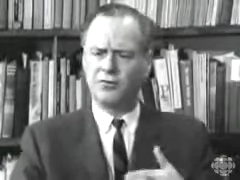
Audio/Video
Duration: 3:25CBC Address: https://www.cbc.ca/archives/entry/mcluhan-predicts-world-connectivityProducer: CBC TV – Take 30 ProgramBroadcast Date: April 1, 1965Host: George Garlock, Paul Soles Key Themes & Ideas:The CBC has provided the following introductory comments for this video in their Digital Archive:“We waste too much time racing from home to office, says Marshall McLuhan, an English professor at the University of […]

Audio/Video
Duration: 3:25
CBC Address: https://www.cbc.ca/archives/entry/mcluhan-predicts-world-connectivity
Producer: CBC TV – Take 30 Program
Broadcast Date: April 1, 1965
Host: George Garlock, Paul Soles
Key Themes & Ideas:
The CBC has provided the following introductory comments for this video in their Digital Archive:
“We waste too much time racing from home to office, says Marshall McLuhan, an English professor at the University of Toronto who’s becoming known internationally for his study on the effects of media. Society’s obsession with files and folders forces office workers to make the daily commute from the suburbs to downtown. McLuhan says the stockbroker is the smart one. He learned some time ago that most business may be conducted from anywhere if done by phone. McLuhan’s prescient knowledge: In the future, people will no longer only gather in classrooms to learn but will also be moved by “electronic circuitry.” [Note that “closed circuit” translates today as online.]
(Starting at 0:34) “The sort of dialogue among all the elements of our world that is going on, actually and without the benefit of bureaucratic blessing or any official blessings, the kind of exchanges and interchanges of imagery and awareness of peoples of the world. This is the pattern I think that education will tend to resort to more and more. Instead of locating people, for example, in a particular space to teach them, say German or Chinese, they will be moved to Germany or China to learn those things. [Host interjects: By circuitry or physically?] Physically, or they could be moved by circuitry.
McLuhan goes on to point out that in his time people found themselves rushing back and forth all day to do things that could have been easily accomplish by closed circuitry, or in today’s terms, online. He asks, why do people keep hurrying downtown? His answer is that it is the filing cabinets downtown in the offices that makes extremists rush back and forth from suburb to office, that it is this obsession with the content of the files: documents, contracts, data, all of these materials actually could just as easily be available on closed circuit (online) at home. A stockbroker found that the telephone enabled him to conduct business anywhere. He didn’t have to rush to the stock exchange. But we still have an obsessive compulsion to abide by the pre-established classification that our job is downtown. That is why we are afraid that automation will force us to integrate with the circuitry, i.e. online.
Possible Uses in Media Education:
This very short video can be used to make students aware of the way new technologies can change the patterns of the way we organize our education and our office work, but that there is tremendous resistance to change. What McLuhan observed 56 years ago, namely the reluctance to change the patterns of office workers by making use of electric circuitry, persists to this day, despite the fact that electric circuitry has evolved into the online world of the Internet, email, and World Wide Web. The filing cabinet is now obsolete, as most information is store in computers and online. It took the Covid-19 pandemic to make companies realize that their office workers could do most of their work from home, with only a minimum of in-office meetings. As the French say, plus ça change, plus la même chose (the more things change, the more things remain the same).
Robert K. Logan, PhD
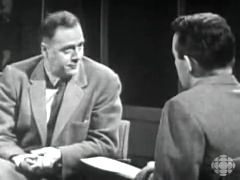
Audio/Video
Marshall McLuhan is Interviewed for CBC TV About His Idea of the Global Village Duration: 8:44Also available at CBC Digital ArchivesProducer: CBC TV Explorations Broadcast Date: May 18, 1960 Hosts: Alan Millar, John O’Leary Key Themes & Ideas:“These new media of ours … have made our world into a single unit….the world is now like […]

Audio/Video
Marshall McLuhan is Interviewed for CBC TV About His Idea of the Global Village
Duration: 8:44
Also available at CBC Digital Archives
Producer: CBC TV Explorations
Broadcast Date: May 18, 1960
Hosts: Alan Millar, John O’Leary
Key Themes & Ideas:
“These new media of ours … have made our world into a single unit….the world is now like a continually sounding tribal drum, where everybody gets the message…. all the time. A princess gets married in England and boom boom boom go the drums and we all hear about it; an earthquake in North Africa, a Hollywood star gets drunk…away go the drums again. I use the word tribal….it is probably the key word …”
For a short, less than 10-minute video, this one is packed with important observations about the culture’s transition from books as the dominant medium to electronic media dominance, especially television, though McLuhan doesn’t mention TV specifically here. McLuhan himself appears around minute 2:48 to tell us that the new culture is “with it,” collective, interactive, and mass informed, whereas the book culture was “away from it,” with people being individualistic with singular points of view. The key word in this presentation, according to McLuhan, is “tribal,” because he sees society retribalizing as the world gets smaller and everywhere becomes our neighborhood in awareness.
Although more books are published and sold than ever before, they are no longer “king.” But this medium that was our “first teaching machine,” one that shaped the Renaissance and provided us with the one-at-a-time assembly line, has lost its influence and dominance. Increasing complexity requires us to use a field structure where more can be taken in at one time. Our electronic media have changed the way we see, hear, and understand, altering our sense ratios when one sense becomes more dominant than a different one was before. And this makes us think differently. This is what happened when the once dominant eye of Gutenberg book culture was diminished and superseded by the ear of the electronic culture.
Possible Uses in Media Education:
This video is best used for teaching how our world became a Global Village because of the evolution of book and print media to be superseded by electronic media, which altered our sense ratios, and changed everything: cognition, communication, social structures, politics, economics, education, and everything else. This has caused people to become retribalized, with resulting loss of individuality and individual point of view.
Alexander Kuskis, PhD